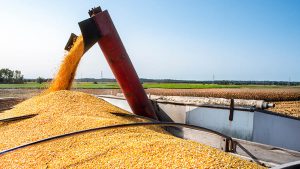Farm asset transfers
CONVERSATIONS WITH BUSINESS EXPERTS

(J.M.) HOW ARE ASSETS ACCOUNTED FOR IN A FARM TRANSITION?
(A.D.) When it comes to transitioning the family farm and thinking about retirement, farming parents are faced with the difficult decision of what to do with their life’s work and farming legacy. For many, the family farm is a business that has grown over the years with investments in land, livestock, and machinery. These assets are now essential to the operation of the farm and are worthy of their own considerations when it comes to transitioning the family farm.
When it comes to making decisions, it’s important for farming parents to discuss their objectives and concerns with an estate planning lawyer first. Together, you can begin developing a succession plan that meets the needs of everyone in the family. A lawyer should also work with the farm’s financial advisor and accountant to provide advice on what assets are tax efficient for transfer over a lifetime, including the potential use of a capital gains exemption.
HOW ARE FARM ASSETS TRANSFERRED?
Gifting farm assets from one generation to the next is common with farm succession. Here are three options I recommend farming parents consider when it comes to transitioning farm assets as part of an overall succession plan.
Gift assets over a lifetime — If you are a parent transitioning the family farm, you may want to consider leaving farm assets to children sooner rather than later. Gifting assets over a lifetime can reduce estate or probate fees that would otherwise be payable when gifted at death. This option is beneficial to help young farmers enter the business and get established. Farmland, equipment, livestock, or shares of the farm corporation can be gifted outright during the parents’ lifetime or transferred jointly. This option offers the next generation a vested interest in a business that their parents have devoted their lives to. It also gives farming parents an opportunity to watch the legacy of the family farm continue.
A parent could add their farm children to the title of the property so they own it jointly, they could transfer one farm to the farming children outright and keep other farms in their own name. When it comes to equipment, parents can assist with financing and have joint ownership as well. It’s important to note that with this option, assets would be available to a separated spouse or potential creditors of the farming children.
By giving a child ownership or partial ownership during their lifetime, a parent is empowering that child to farm and to take a vested interest in the viability of the farm. Ideally, the farming children would be open to learning from their parents and may be more willing to do so if they have an ownership interest.
Gift a portion of assets — This option is most beneficial for farm families where children aren’t 100 per cent sure if they want to take over the family business. Parents can select assets to gift and work alongside the next generation to assist in managing the new responsibility. Be careful of gifting too many assets if parents aren’t convinced of their child’s commitment to the family farm because the child would have the right to turn around and sell the assets.
Gift assets in a will — If farming children have been involved in the operation over the years and parents are confident the next generation would seamlessly continue the business after they pass, gifting the assets in a will might be the best option. A downside to this is that the farming children have to wait until their parents’ death to be fully responsible and hands-on with the farm business. If parents haven’t allowed the children to understand and contribute to the operation of the business, they could risk success and continuation of the family farm.
ANY TIPS FOR MANAGING FAMILY DYNAMICS?
When it comes to dividing up farm assets and a lifetime of work, the best advice I can offer is to communicate. Many families have become divided because of perceived inequities and resulting hard feelings over their parents’ wills. I recommend parents consider individual family dynamics and communicate the reason for the division of assets with all children (farming and non-farming) while you are still alive.
If parents are gifting assets to farming children during their lifetime, they should make sure the non-farming children know this along with your plan to equalize assets with them, whether it is also during their lifetime or upon death with life insurance or other investments. Parents often use non-farming assets to equalize funds between their children, including life insurance policies, TFSAs, or non-farm-related properties like cottages. •





















